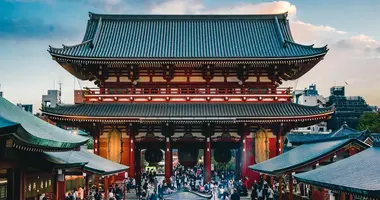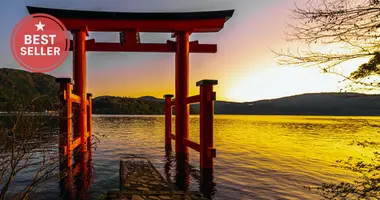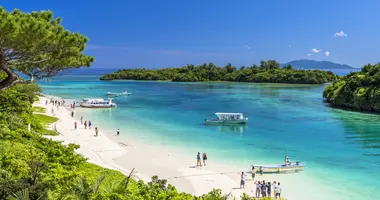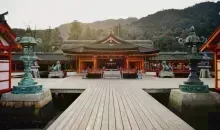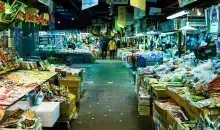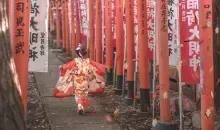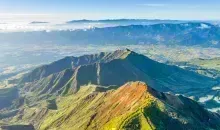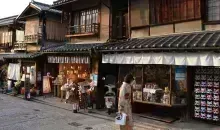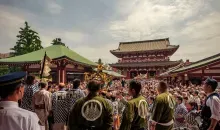Kairi, the gourmet train
- Published on : 18/11/2019
- by : I.D.O.
- Youtube
Don't miss the the luxury culinary experience on rail!
"The important thing is not the destination, but the trip itself". This maxim by Robert Louis Stevenson could be the motto of the JR EAST Railway, which, with its "Joyful Train" concept, transforms the onboard experience with a luxury gourmet experience! The latest star, Kairi, has been in service since October 5, 2019, and connects the city of Niigata in the prefecture of the same name to that of Sakata in Yamagata prefecture, along the Sea of Japan. The Train is THE destination!
Travel on an exceptional train
Kairi means "marine village" and thus evokes the small fishing villages that dot the coast of the Sea of Japan. The concept is to offer sophisticated seasonal cuisine on board. A gastronomic and tourist trip where you discover the landscape while savoring top-quality local specialties.
The train, a diesel hybrid composed of only four cars that can accommodate 86 passengers, serves, in principle, ten stations (stops are subject to change). Its colors, in gradations of red and white, suggest the setting sun, which ignites the coasts of the Sea of Japan, and the white of the snow, so abundant in this part of the land.
Only two cars are reserved for passengers, one is composed of reclining seats and the other of compartments which can accommodate a party of four.
A third is reserved for the sale of dishes and products designed exclusively for KAIRI and of special promotions.
Try Japanese cuisine on board
It is a top-of-the-line restaurant since the meals are prepared by four major restaurants in the regions through the journey.
For Niigata Prefecture, renowned for its fine cuisine, three famous Japanese restaurants, Ikinariya, Nabechaya, and Ichishime, established in the area since the late 1840s, concoct dishes, especially for KAIRI passengers. Ikinariya is a restaurant specializing in gourmet Japanese kaiseki cuisine. Nabechaya offers a bento menu with local products for lunch, while Ichishime is renowned for its eel dishes.
Once in the Shonai region (north of Yamagata prefecture), the no less famous Italian restaurant Al Ché-cciano takes over, offering cuisine that fuses the flavors of Italy with those of Japan.
Magnificent landscapes
The different cities served all have their attractions, despite the comfort of the KAIRA train, it would be a disservice not to make any stops.
The first station is Shibata Station, where castle lovers are sure to get off to visit Shibata Castle, the only castle in Niigata Prefecture that has remnants from the Edo period (1603-1868). It has been designated as a cultural property of Japan.
The line runs along the Sea of Japan and in particular the magnificent wild coast of Sasagawa Nagare (get off at Kuwagawa station). A real delight for the beach lovers in the summer! Or disembark at Atsumi-Onsen station and soak in the hot springs in the picturesque spa town.
As for gourmands, they will be delighted to learn that the city of Tsuruoka is classified as a creative culinary city by UNESCO. It is also from Tsuruoka that one can go to Mount Haguro, one of the three sacred mountains of the Dewa sanzan.
As for the terminus city, Sakata, it was the second port of Japan during the Edo period and inherited a rich architectural heritage.
Outside the city, hidden by abundant nature, is the excellent museum in honor of the Japanese photographer Domon Ken, created by the famous architect Taniguchi Yoshio.
- Read also: JR train - "FUJI EXCURSION"
On an exceptional train, exceptional conditions and times
The KAIRI train does not run every day and running dates vary depending on the month of the year.
For the moment, there is only one train at 10:12 am from Niigata (arrival around 1 pm in Sakata) and two trains from Sakata to Niigata: departure at 3:12 pm and 4:11 pm, arrival around 6:30 pm.
The line serves (departing from Niigata) the cities of Shibata, Nakajô, Sakamachi, Murakami, Kuwagawa, Atsumi-Onsen, Uzen-Oyama, Tsuruoka, Amarume and Sakata.
It is possible to use the JR East Pass (covering the regions of Nagano and Niigata) but reservations are made under certain conditions, once in Japan.





